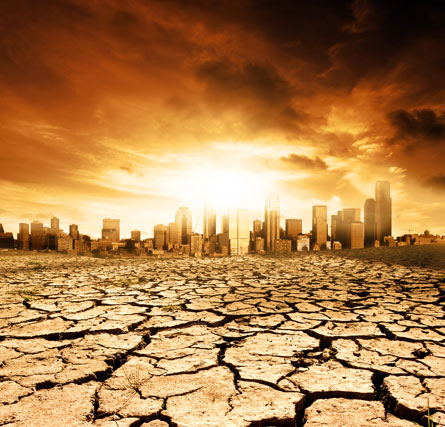Lesson 4.3
| Site: | MoodleHUB.ca 🍁 |
| Course: | PAVE Social 10-1 |
| Book: | Lesson 4.3 |
| Printed by: | Guest user |
| Date: | Sunday, 30 November 2025, 8:55 AM |
Description
Lesson 3—Sustainability
What is sustainability and what is its significance in a globalizing world?

What is in the beverage vending machine in your school? Is bottled water a choice? Are you a regular consumer of bottled water? What is the impact of purchasing bottled water over tap water on sustaining your quality of life?
Lesson 3 Explore 1
Explore 1
What is it that we are trying to sustain?

|
Reflect on what impact the use of bottled water had on sustaining your quality of life. Sustainability is the ability to maintain current and future resources. It is also about being able to maintain ways of life and quality of life. There are diverse perspectives on what resources, what ways of life, and how sustainability will be achieved. Multinational corporations may perceive sustainability as economic and resource directed. Countries may see sustainability as essential to the economic and political survival of the country. Citizens may see sustainability as a guarantee of keeping this planet viable for future generations. What are all three stakeholders trying to sustain? |
multinational: a business that expands to become a corporation that conducts business in many countries viable: a condition of being capable of growing or developing stakeholder: an individual or group that is involved or affected |
Research
This is a required activity for Explore 1 but is not graded.
To gather as many understandings about this question as possible, research what multinational corporations, countries, and citizens are working to sustain.
- multinational corporations – Select two corporations of your choice and research their strategies for sustainability. Identify the common theme of these strategies. What are multinational corporations working to sustain?
- countries – Research Canada and one other country of your choice. Find out what the governments of these countries promote as plans for sustainability. Identify the common theme of these strategies. What are countries working to sustain?
- citizens – Research two individuals (for example, Naomi Klein or David Suzuki) of your choice. These individuals may be of diverse perspectives on sustainability. Find out what they are promoting as strategies for sustainability. Identify the common theme of these strategies. What are citizens working to sustain?
Explore 2
Explore 2
Why is sustainability a concern in the globalizing world?

American Al Gore created a tour and the film Inconvenient Truth to raise awareness of sustainability. Why is sustainability a priority in the twenty-first century? What is happening with globalization that a growing number of citizens are concerned that expanding globalization and sustainability are not compatible?
You may wish to watch the film Inconvenient Truth- find it on Netflicks.
Explore 3
Explore 3
What is sustainable prosperity?
|
|
economic prosperity: the material wealth often viewed as necessary to ensure a high quality of life for an individual or a country |
In Lesson 2 you explored the inequalities in the distribution of prosperity in the world, even in Canada. Many countries take on the responsibility of not only ensuring the prosperity of their own citizens but also making commitments to help other countries develop prosperity as a global responsibility. Another issue for countries is how to sustain prosperity. Economic prosperity based on material wealth may increase or decrease depending on the availability of resources and conflict; for example, war and invasion may reduce the prosperity of a country. It’s no longer a priority of developing prosperity but making it a sustainable prosperity. What does that look like?
Sustainable Prosperity is a Canadian non-governmental organization. It describes sustainable prosperity as building an environmentally greener and more prosperous economy for Canada.
The United Nations Division for Sustainable Development states the following: Development that meets the needs of the present without compromising the quality of future generations to meet their own needs.
The Social Studies Online Guide provides three contexts to consider:
|
institutional or social sustainability: the ability to maintain the social and governmental structures, rules, and practices of a society over time economic and financial sustainability: the ability to maintain a strong financial status and/or economy in the future environmental or ecological sustainability: the ability to maintain the qualities that are valued in the environment |
Assignment
Please complete your What Does Sustainable Prosperity Look Like? Assignment at this point.
Section Summary
Creating or Limiting Sustainable Prosperity?
Which global events have had the most significant impact on sustainable prosperity?
You have now completed the lessons for Module 4 Section 1. Complete the section challenge activity to demonstrate the new understandings you have developed about globalization, sustainability, and prosperity.
In this section challenge you will analyze current events to evaluate the potential impact these events have on sustainable prosperity. In collaboration with two or more students, follow the steps of this challenge to create a ranking of which events represent the most significant impact on creating or limiting sustainable prosperity.
Assignment
Please complete the Challenge - The Most Significant EventsAssignment at this time.
Section Glossary
Section 1 Glossary
cost of living: a measure of how affordable basic goods and services are in comparison to the average incomes of citizens
This also measures how affordable it is to maintain a high standard of living.
developed country: a country with the infrastructure, resources, and economy capable of engaging in a range of industries, including tertiary and quaternary industries (production and services) to generate a high gross national income and offer a high standard of living to its citizens
developing country: a country that has an economy that is primarily resource based and has a relatively low standard of living for its citizens
disposable income: the portion of an individual’s wages that remains after meeting the costs of purchasing basic necessities such as food, clothing, shelter, and health care
This lack of income may be a factor in an individual’s ability to access opportunities such as leisure time and non-essential goods.
economic and financial sustainability: the ability to maintain a strong financial status and/or economy in the future
economic globalization: a dimension of globalization that refers to the expansion of trade globally and the interdependence of the economies of the world due to the development of global trade networks and transportation and communication systems
economic prosperity: the material wealth often viewed as necessary to ensure a high quality of life for an individual or a country
environmental or ecological sustainability: the ability to maintain the qualities that are valued in the environment
first world country: a country with the infrastructure, resources, and economy capable of engaging in a range of industries, including tertiary and quaternary industries (production and services) to generate a high gross national income and offer a high standard of living to its citizens; another name for a developed country
greenhouse gases: gases produced by carbon emissions resulting from both natural and industrial processes
It is the growing quantity of greenhouse gases produced by industry- and energy-consuming citizens that has become an issue. Greenhouse gases can cause a rise in global temperature, which can lead to changes in the global climate.
impoverished: living in poverty and challenged to meet basic needs
industrialized: a term used to describe a developed country or first world country; a country with the infrastructure, resources, and economy capable of engaging in a range of industries, including tertiary and quaternary industries (production and services) to generate a high gross national income and offer a high standard of living to its citizens
institutional or social sustainability: the ability to maintain the social and governmental structures, rules, and practices of a society over time
less- or least developed country (LDC): a country lacking the infrastructure, resources, and economy capable of engaging in a range of industries to promote a strong economy to contribute to an adequate quality of life for its citizens
The economy is often based on a resource industry and lacks the ability to expand to manufacturing and/or service industries.
life expectancy: a measure of the average life span or survival rate of a population
A low life expectancy is often related to a least developed country where the low standard of living contributes to a low rate of survival for citizens of the country.
life satisfaction: an individual’s perspective on his or her level of well-being and happiness
Quality of life is a factor in whether an individual will acknowledge that he or she has a high level of life satisfaction. An individual may have access to the necessities of life but may not be satisfied with his or her quality of life.
low development: a measure of the quality of life based on the rate of gross domestic product, life expectancy, and education
This ranking describes a country that has a low domestic product, low life expectancy, and low literacy rate.
material wealth: the quantity of money and property a person has
In the case of a country, it reflects the value of the goods and services it has and the income available to provide essential services such as health care and education to the citizens of the country.
multinational: a business that expands to become a corporation that conducts business in many countries
non-industrialized: a term used to describe less-developed countries that have not developed beyond resource-based economies
These countries often lack the resources and infrastructure to create their own manufacturing industries.
north: reference to the location of a country north of the equator
poverty: a condition where an individual is lacking in the financial and material possessions necessary for an adequate quality of life
prosperity/prosperous: a condition of being successful or fortunate
quality of life: social, economic, and political conditions that contribute to the satisfaction people have with their lives
The struggle to access food, clothing, and shelter may reflect a low quality of life. A high quality of life may reflect the balance between work and leisure.
second world country: a country that is beginning to move from an agriculturally based economy to an industrialized one; another name for a developing country
south: reference to the location of a country south of the equator
stakeholder: an individual or group that is involved or affected
standard of living: a measure of the quantity and quality of goods and services (such as food, clothing, shelter, health care, education) to which an individual has access
sustain: to maintain a condition with an adequate supply
sustainability: the condition of maintaining the current status into the future
third world country: a country that continues to have economies that are primarily agricultural and have yet to transition to an industrialized economy; another name for less-developed country
United Nations Human Development Index: an indicator of the human development of a country based on a measure of the extent of opportunities for citizens to education, health care, income, employment, life expectancy, and gross domestic product
universal: available to all members of society
viable: a condition of being capable of growing or developing
World Bank: an organization made up of 185 countries that provides financial assistance to developing